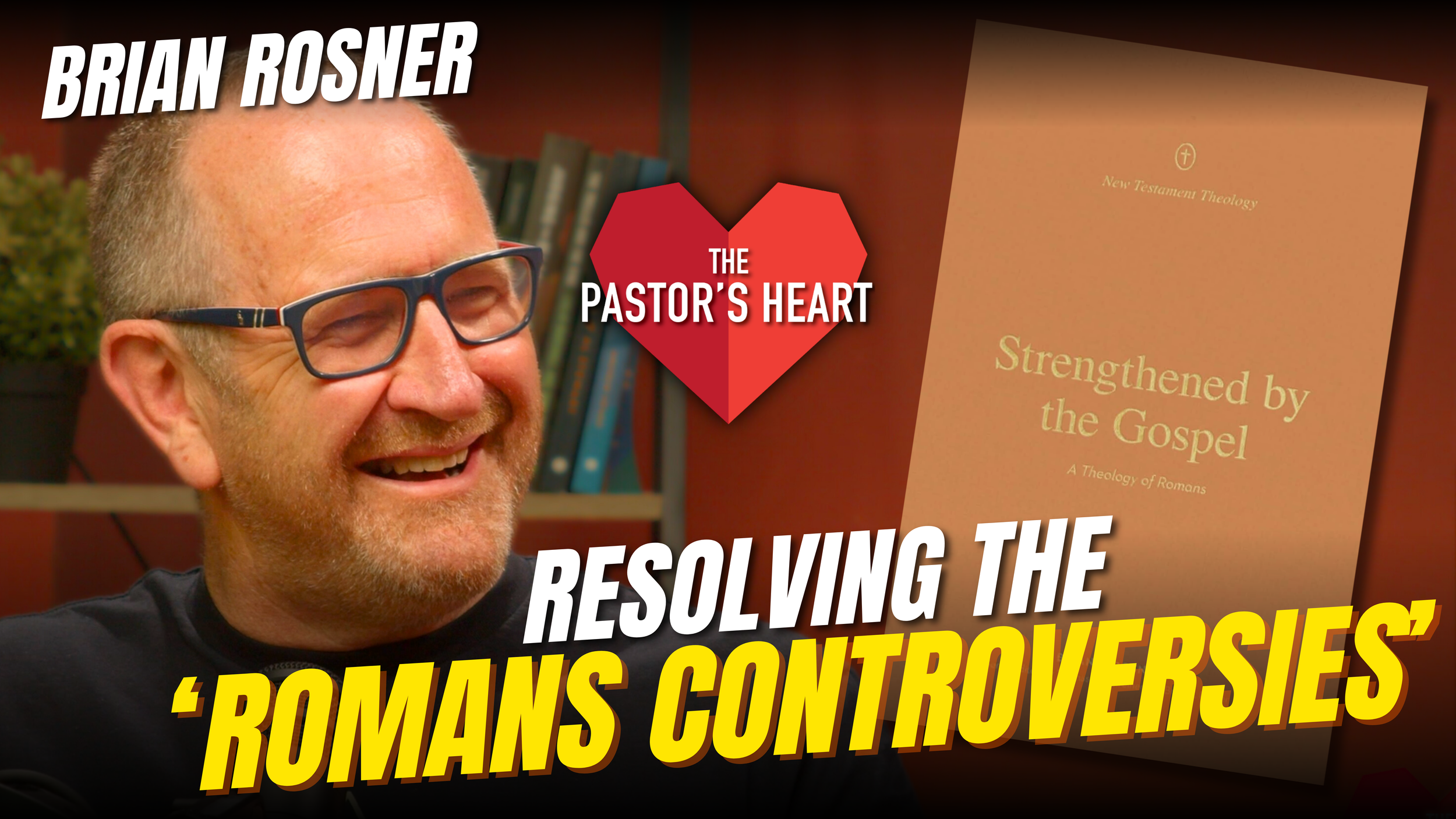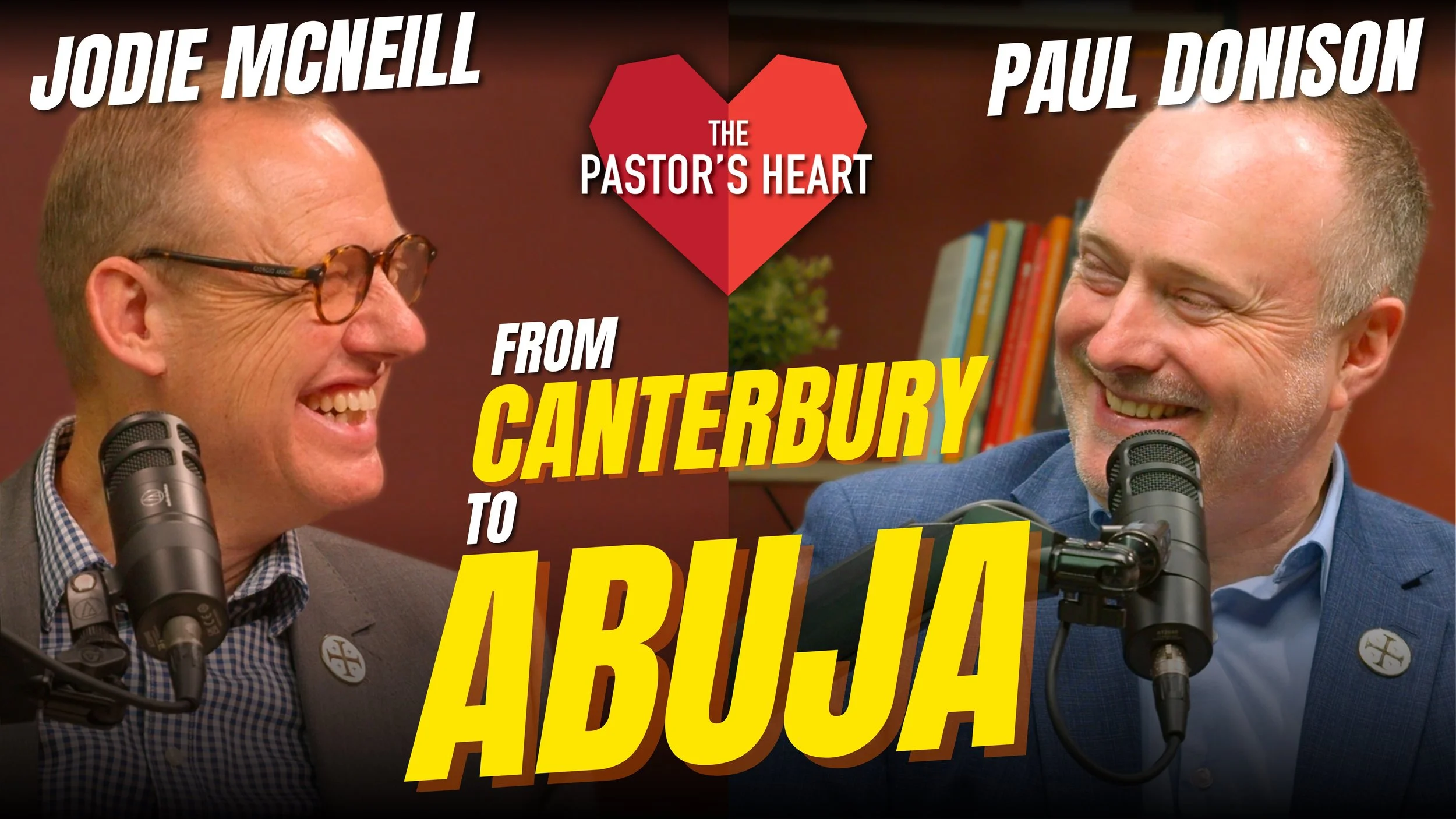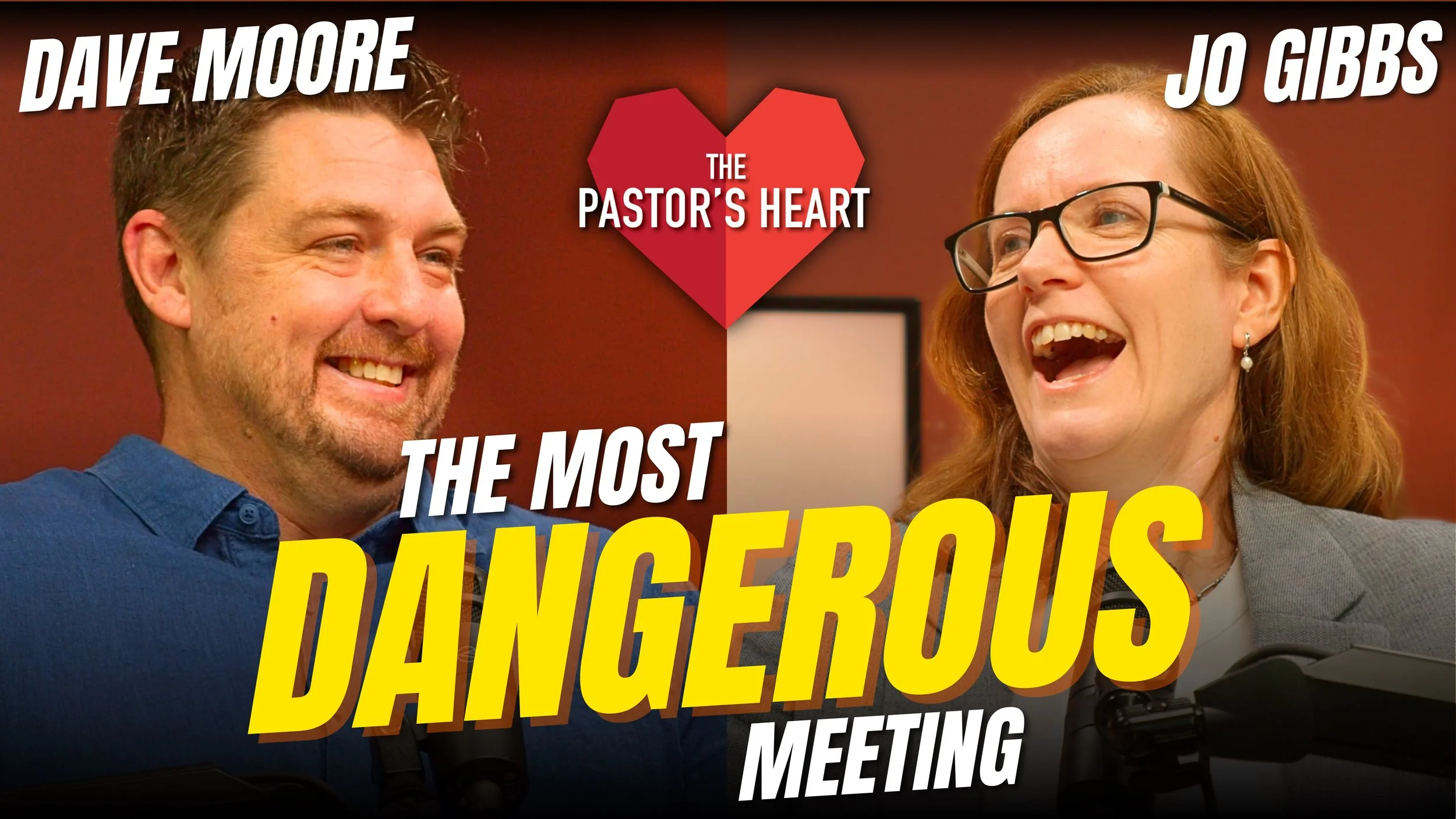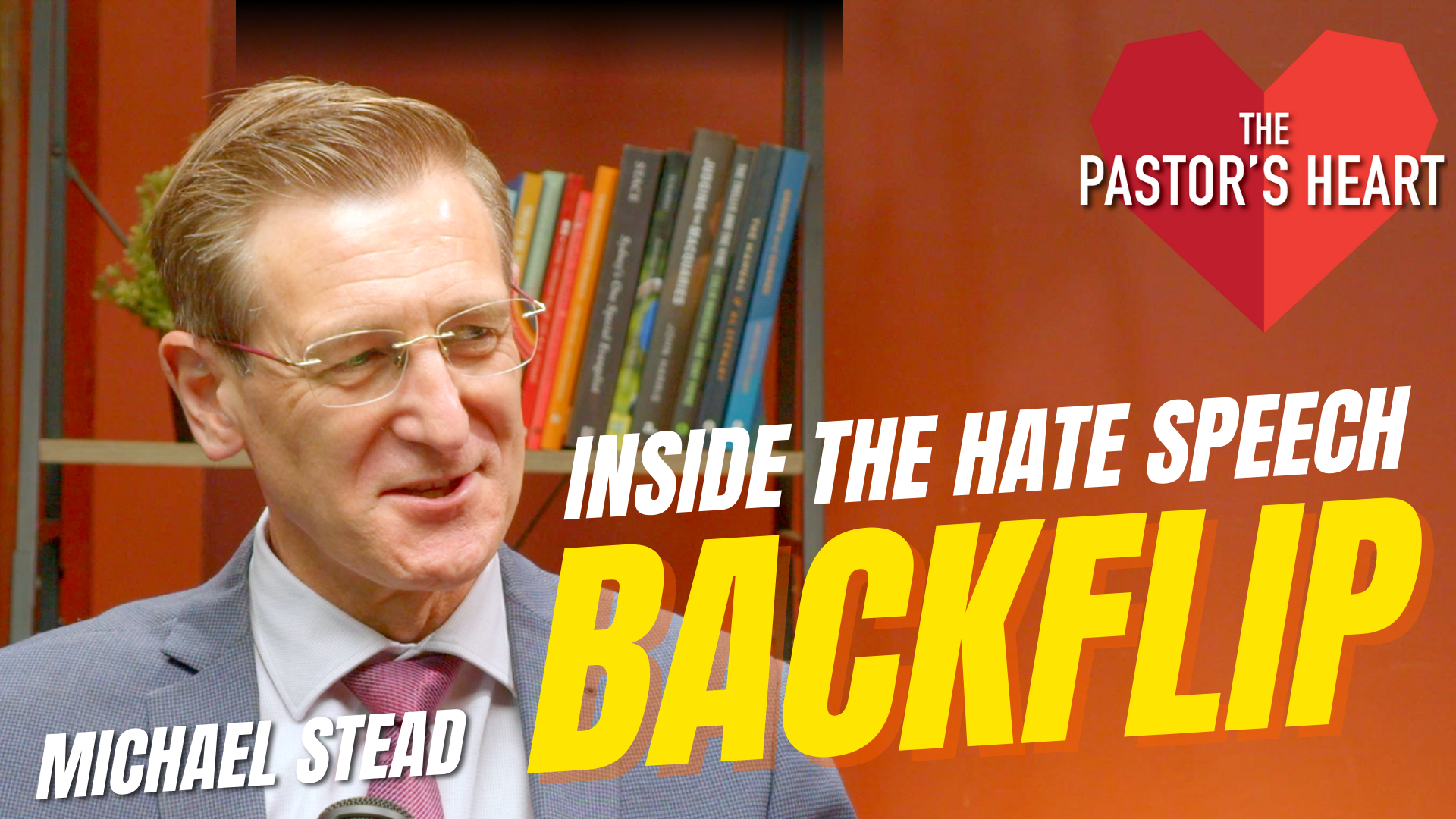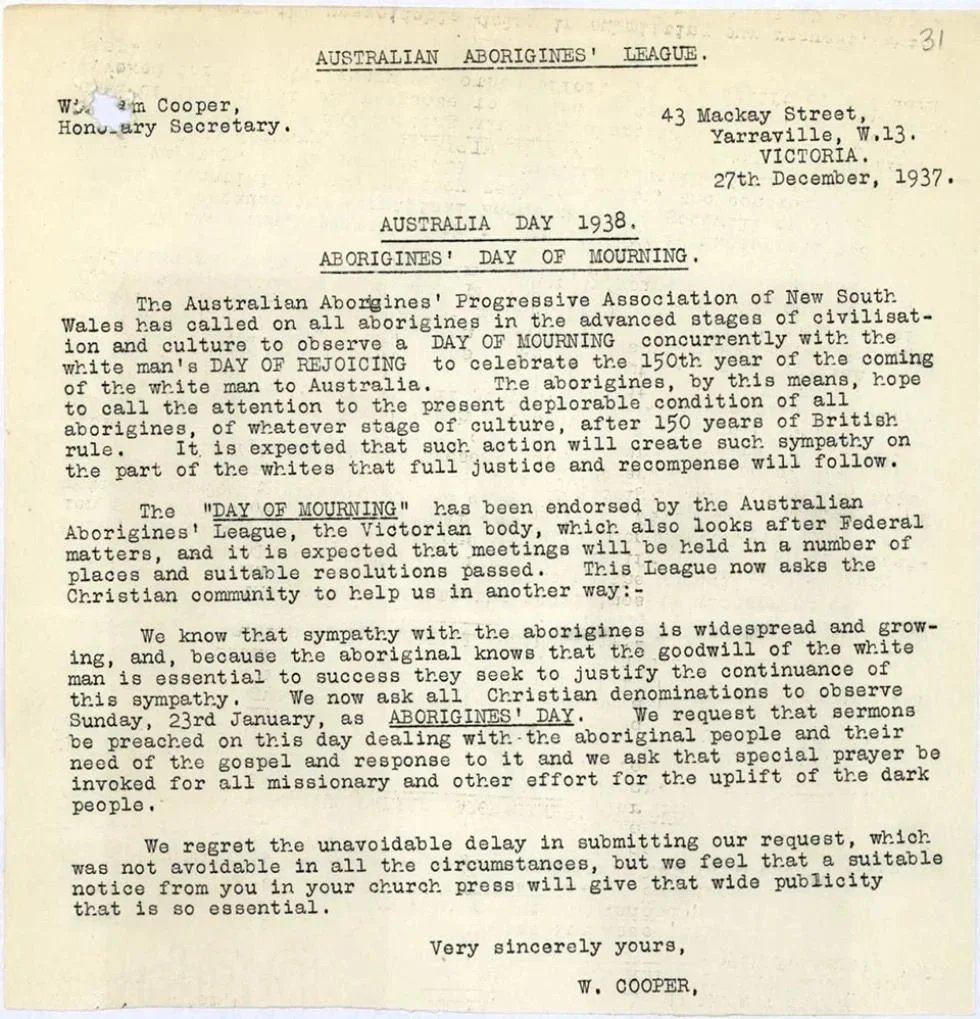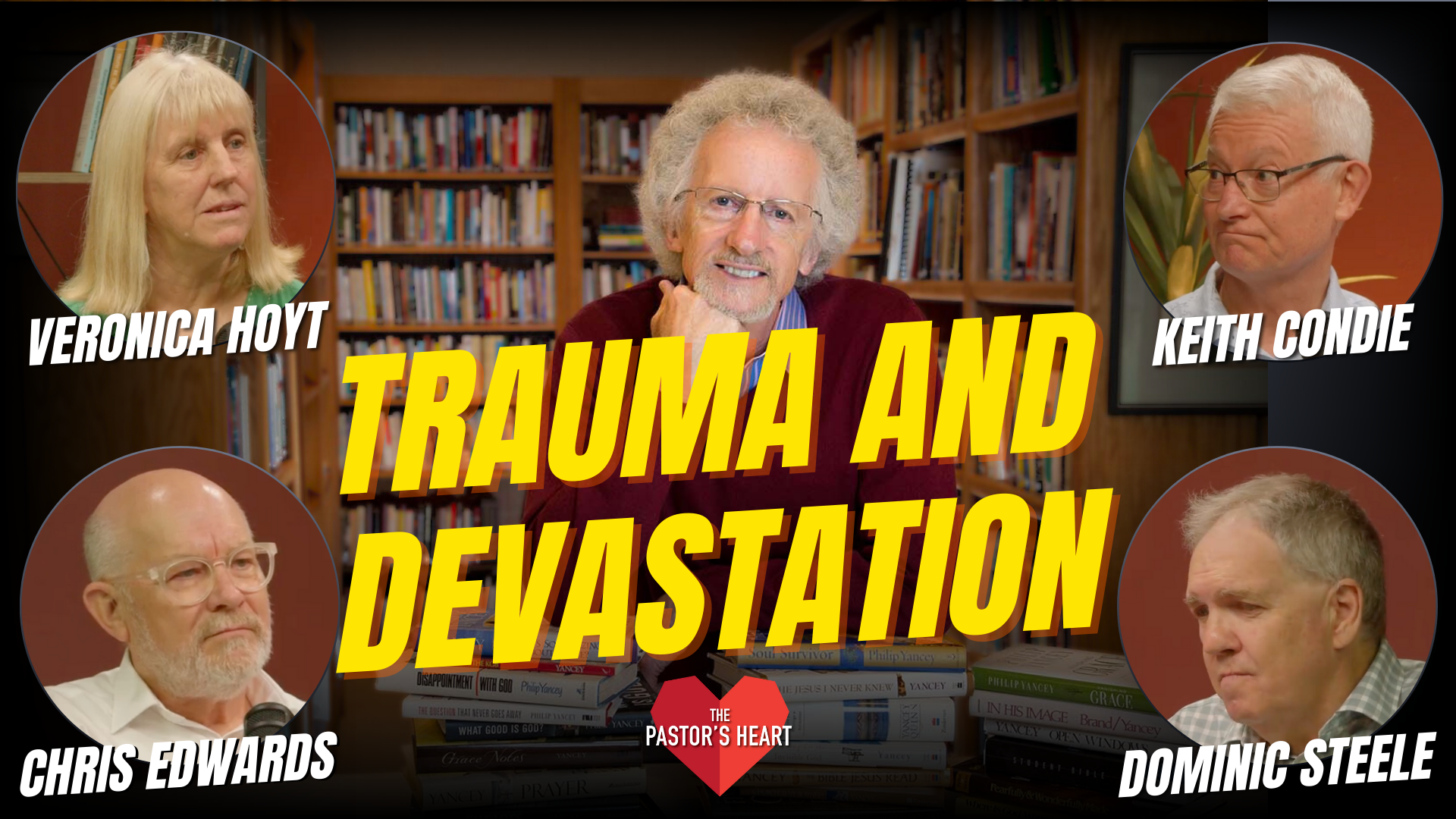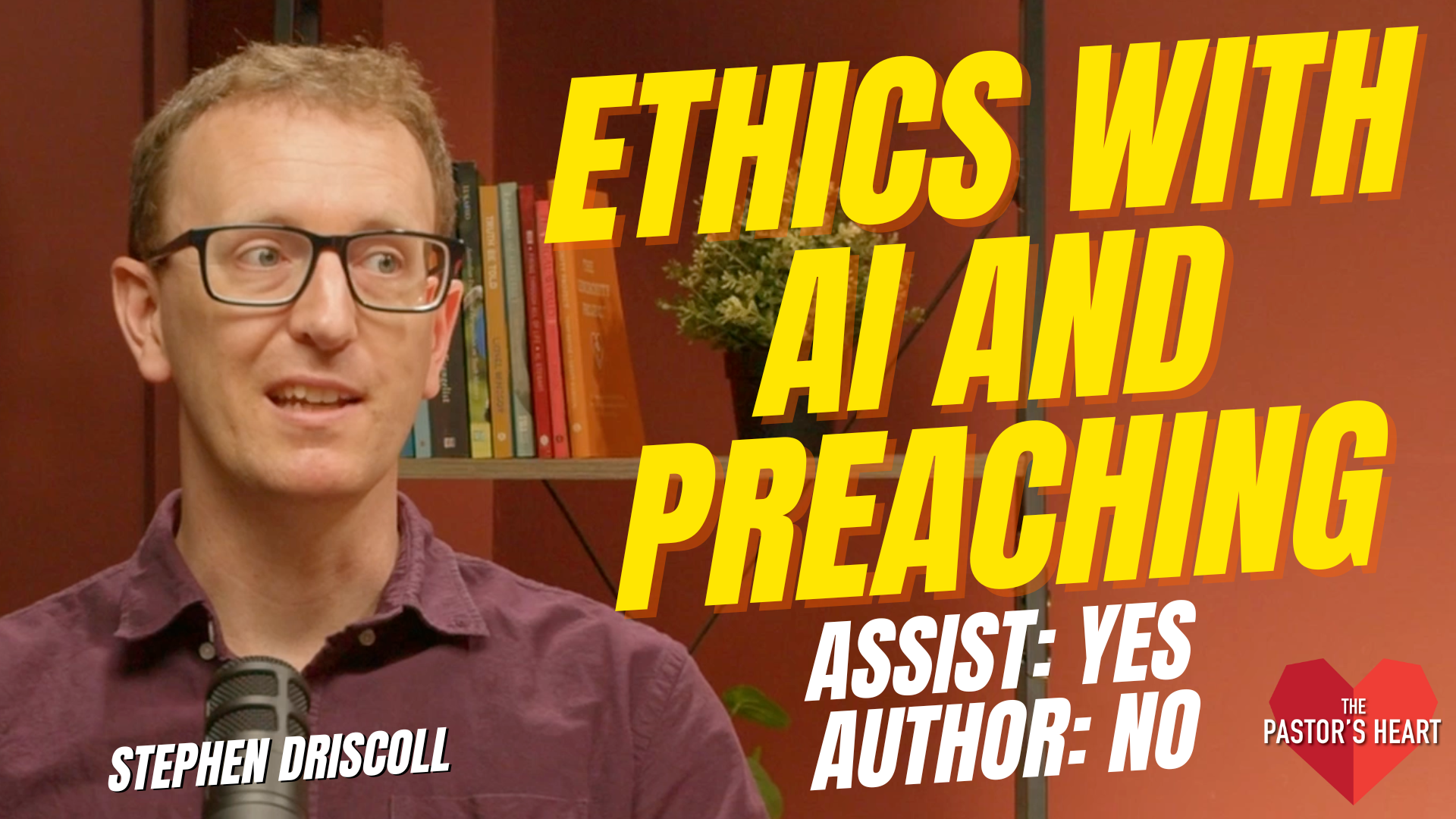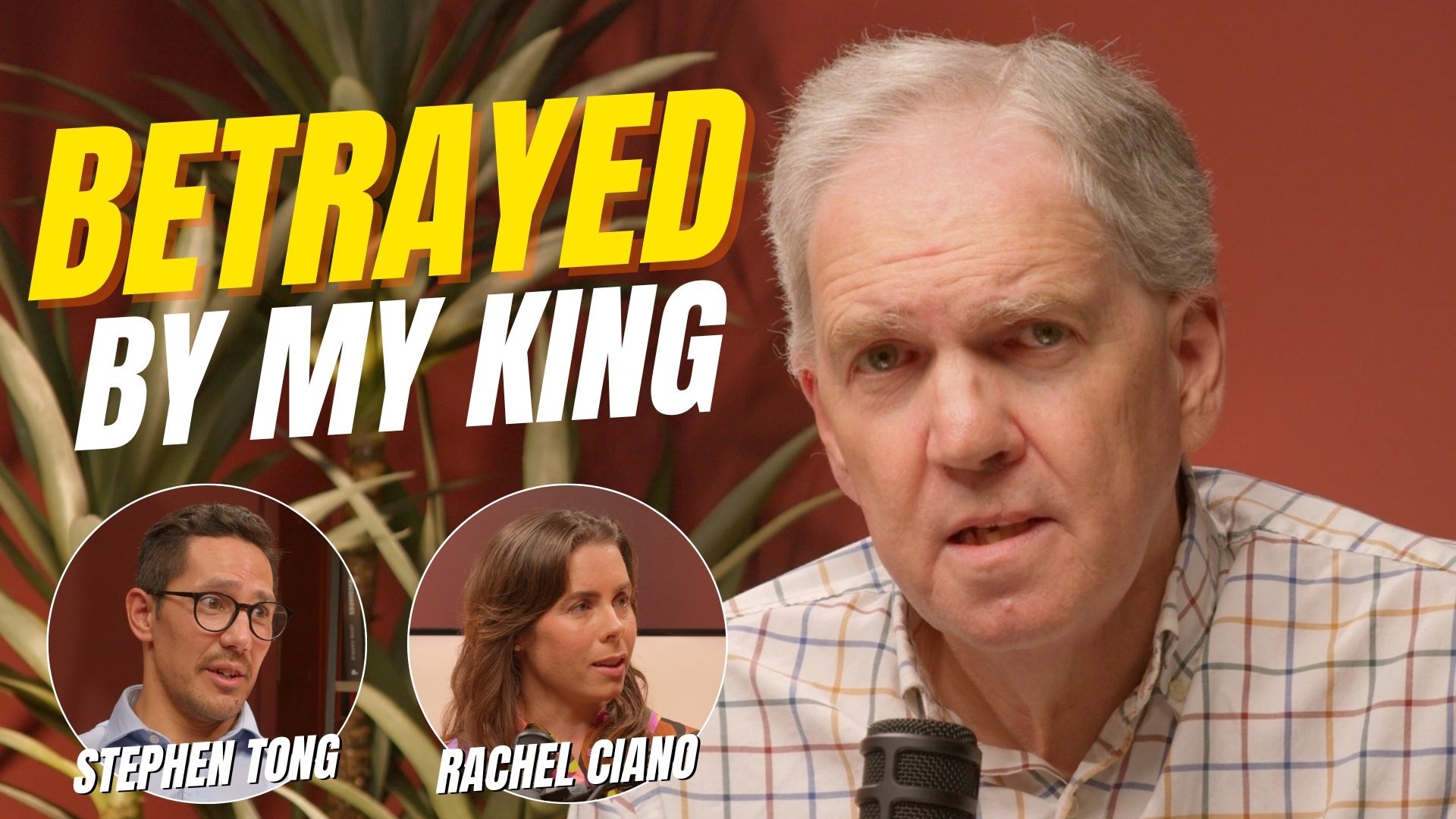The Pastor's Heart aims at serving senior Christian leaders, where Dominic Steele speaks live on facebook each Tuesday afternoon with a senior Australian Christian leader about their ministry and their heart.
Featured
What is the “righteousness of God”?
Is it faith in Christ or the faithfulness of Christ?
Who is the “I” in Romans 7?
What exactly is Paul saying about Israel and the Law?
How does Romans use the Old Testament?
And is the gospel mainly about individual salvation or shaping a new community?
We’re just three weeks away from what may prove to be one of the most significant gatherings of Anglican leaders in a generation — as bishops, clergy and lay representatives from across the world meet in Abuja to chart the future of global Anglicanism.
We preview the conference being led by Global Anglican Futures Conference (GAFCON), and explore how its proposed “reordering” of the Anglican Communion compares with the approach of the Global South Fellowship of Anglicans.
For many pastors, the AGM is something to be survived — not led.
A governance headache. A compliance exercise.
And for some, the meeting where old tensions resurface and trust quietly erodes.
But what if we’ve misunderstood the AGM?
What if, instead of just doing compliance, we aimed to build confidence?
What if the AGM could be a leadership moment — one that strengthens, not damages, your church?
So much of our culture judges events in isolation — a single moment, a single failure, a single decision — detached from what led to it and what flows from it. But history doesn’t work like that. Events emerge from long trajectories, and they reshape the future in ways no one fully controls or intends.
In just days, sweeping Australian national legislation moved from deeply alarming to not great, but not terrible — after intense pressure from faith leaders across the country.
What was originally proposed? Why did faith leaders unite in an extraordinary last-minute letter to the Prime Minister? Which parts of the bill remain concerning — and which dangers were narrowly avoided?
Here’s the suggested introduction for a feature for this Sunday in Australian Churches (ie the Sunday before Australia Day).
We are taking The Pastor’s Heart on the road. Can you please help fund our coverage of the first gathering of the GLOBAL ANGLICAN COMMUNION.
We’re planning a series of daily broadcasts from ABUJA NIGERIA for the first week in March, as the faithful bishops gather to move away from Apostasy, Colonialism and Canterbury to a faithfulness to Jesus Christ.
We will be there with the full coverage. To do that we need your support. Click to financially sponsor The Pastor’s Heart work.
Philip Yancey’s confession of an eight-year adulterous affair has shocked the evangelical world. His writing shaped a generation. His failure has caused deep harm.
So much pastoral energy is lost when teams don’t function well.
Anxiety rises, trust erodes and the mission of the church suffers. But when teams are healthy, aligned and generous with one another, churches flourish.
All Christians are called to live like Christ. But in Titus 2, the apostle Paul speaks about godliness in strikingly specific ways — addressing older and younger, men and women. Why does he do that? Are age and sex merely cultural categories, or gifts from God that shape the challenges we face in following Jesus?
We've pulled in three experts to help us prepare for Christmas Eve and Christmas Day. We share talk structures, attention hooks, and illustrations that connect with guests who didn’t come for a sermon but need a Saviour.
Sydney’s Anglican Archbishop Kanishka Raffel calls on Sydney to embrace our Jewish neighbours in love, friendship and support and to reject antisemitism, violence and hatred.
Archbishop Raffel says this is the way of Jesus.
In the last few months two senior evangelical leaders have taken their own lives.
We react with a range of questions: Should I have known? Could I have done more? What do I say to the church? What do I say to the world, but most importantly where is God?
What are the dangers when pastors let AI assist… or sometimes author?
How do we think well about plagiarism, spiritual formation and the loss of our pastoral voice?
And are there positive, God-honouring ways to use these tools?
Paul Donison responds to global reaction to Gafcon’s reset of the Anglican Communion and its declaration that Canterbury’s time is over.
The Lord is removing his Spirit from the Canterbury–Lambeth lampstand, and the centre of global Anglicanism is shifting from London to Africa.
How to turn around evangelistic stagnation in your church — or how to start pursuing a 5% goal?
Across Australian Evangelicalism there is a bold goal — growing our churches by 5% per year through conversion growth.
But some pastors are asking: “We haven’t seen anyone become a Christian here in years… where do we even start?”
Something is happening. In England the data shows a quiet revival. In France a new evangelical church is opening every ten days. But what about here in Australia?
Among young adults we’re hearing stories of renewed interest in Jesus, fresh conversions and surprising openness. Is this a cultural phenomenon or is it something deeper? And how do we ride the wave?
We talk about ground level experiences, the big picture, the influence of politics, and the five percent conversion growth goal for Sydney Anglican churches.
What does healthy, joyful, word-shaped congregational singing look like in a culture obsessed with self-expression?
We are shaped more than we realise by the culture around us. And today one of the most powerful cultural forces pressing on our churches is expressive individualism — the idea that the authentic self must be expressed and affirmed.
But what happens when this cultural air we breathe seeps into our church music? When sincerity becomes more important than truth, when the band is excellent yet the congregation is silent, and when singing shifts from “we proclaim Christ together” to “I express what I feel”?
Marcus Loane said no. The King said yes.
For the first time in more than 800 years, an English monarch has prayed publicly with the Pope.
King Charles III — the Supreme Governor of the Church of England — joined Pope Leo XIV in the Sistine Chapel in a highly choreographed moment of unity. But for many Protestants, this was not a moment to celebrate, but to grieve.
“We are now the Global Anglican Communion,” says Archbishop Laurent Mbanda — the Chair of Gafcon, Primate of Rwanda, and leader of Global Anglicans.
Bible-believing Anglicans around the world are praising God today.
The Anglican Communion is being reordered — reset — with the Bible once again at its foundation.
The Archbishop of Canterbury, the revisionists, and the so-called Canterbury Communion are out — they’ve repeatedly abandoned Cranmerian Anglicanism, and ultimately, Jesus himself.
This reordering seeks to restore the Communion’s original structure — a fellowship of autonomous provinces bound together by the Formularies of the Reformation. There will be no communion with those who have abandoned the authority of Scripture.
A new Council of Primates will be formed, electing a chairman to preside as primus inter pares — first among equals.
How can we help those trapped in addiction? What about when we ourselves are the ones struggling?
Addiction is often an elephant in the room for pastors — whether it’s alcohol, substances, pornography, or sex addiction. And Antony’s research is asking: “How does the gospel of Jesus Christ bring real hope into the deep brokenness of addiction?”
The Bishop of London, Dame Sarah Mullally, will take on the role of Archbishop of Canterbury — but instead of celebration, the global response has been marked by shock, disappointment, and unprecedented criticism.
Sinclair Ferguson is speaking across Eastern Australia and joins us to share wisdom that he wishes he’d been given when he started in pastoral ministry in Glasgow 54 years ago.
Sinclair has served for decades as a pastor, preacher, theologian and author in Scotland and the United States. He’s the author of 50 books.
How do you understand God’s sovereignty when your dad is murdered, your family is in poverty, you are living in the most awful slum and your extended family won’t help.
Richmond Wandera's father murdered when he was just eight years old, leaving his family destitute in Uganda's Naguru slum. Initially he wanted revenge. But then he came to know Jesus Christ.
We talk theological reflections on suffering, as well as a challenge for Western comfort-seeking Christianity, and a clear critique of the Prosperity Gospel.
This week marks the 100th birthday of Dick Lucas, one of the most influential evangelical leaders of the 20th century. For nearly four decades as Rector of St Helen’s Bishopsgate in London, Dick shaped a generation of preachers and transformed a quiet city parish into a global centre of expository Bible ministry. The influence of his clear, fearless, and creative preaching continues to ripple out through pulpits around the world.
Reaching the 70% of the population who are significantly underrepresented in our churches.
We’re talking about everyday Australians — people who’ve gone straight into the workforce rather than university. That includes hairdressers, plumbers, builders, business owners, factory workers, truck drivers, IT staff, and media creatives — as well as many in marginalised communities.
A new goal to see 5% of average service attendance saved - with Pete Stedman, Jon Kwan, and Jo Gibbs
Twelve months ago we heard the sobering news of a significant attendance drop in Sydney Anglican Churches. Over the decade from 2013 to 2023, weekly attendance fell by 7% – and when you factor in population growth, attendance was 14% behind.
At last year’s Sydney Anglican Synod, the mood was serious. A resolution was passed calling for confession and humble repentance – acknowledging that their hadn’t been sufficient priority, attention, reflection, or resources to seeing the lost saved by Jesus. Synod called for a five-year focus to reverse the decline – putting prayer, evangelism, church health, and leadership development at the very centre of priorities.
Ahead of this year’s Synod, there is a response. The Standing Committee appointed a subcommittee, led by the Archbishop, to bring forward concrete proposals. And what they have come back with is significant.
The call to ministry is a call to lay down your life for others, but how do we create a well-thought-out roadmap toward pastoral perseverance - when there are external and/or internal difficulties?
How do we approach congregational conflict, criticism, unrealistic expectations or personal health, financial and family stress?
Why is pastoral friendship not optional, but essential?
Today on The Pastor’s Heart, there’s advice for pastors who feel isolated and are feeling like quitting.
Today our focus on The Pastor’s Heart is on how to preach for transformation for real changes in people’s lives.
Two men with a lifetime’s passion for preaching — Robin Sydserff, Director of the Proclamation Trust and David Cook, former principal of Sydney Missionary and Bible College and a long-time preaching mentor - now with the Expository Preaching Trust.
We start by looking at how Christian leaders the UK and Australia influenced preaching patterns overseas.
We look at preaching that has led to record enrolments at Bible Colleges, the purpose of preaching, the life and relationships of the preacher, training preachers and what patience is needed in preaching growth.
A training culture for the next generation: Healthy Churches producing new ministers for the next generation.
Across the world, the number of candidates putting themselves forward for gospel ministry is in decline. Many churches are feeling the pinch—struggling to find leaders and often looking elsewhere to fill ministry gaps.
Yet healthy churches don’t just maintain ministry; they reproduce it. They raise up and send out the next generation of gospel workers.

